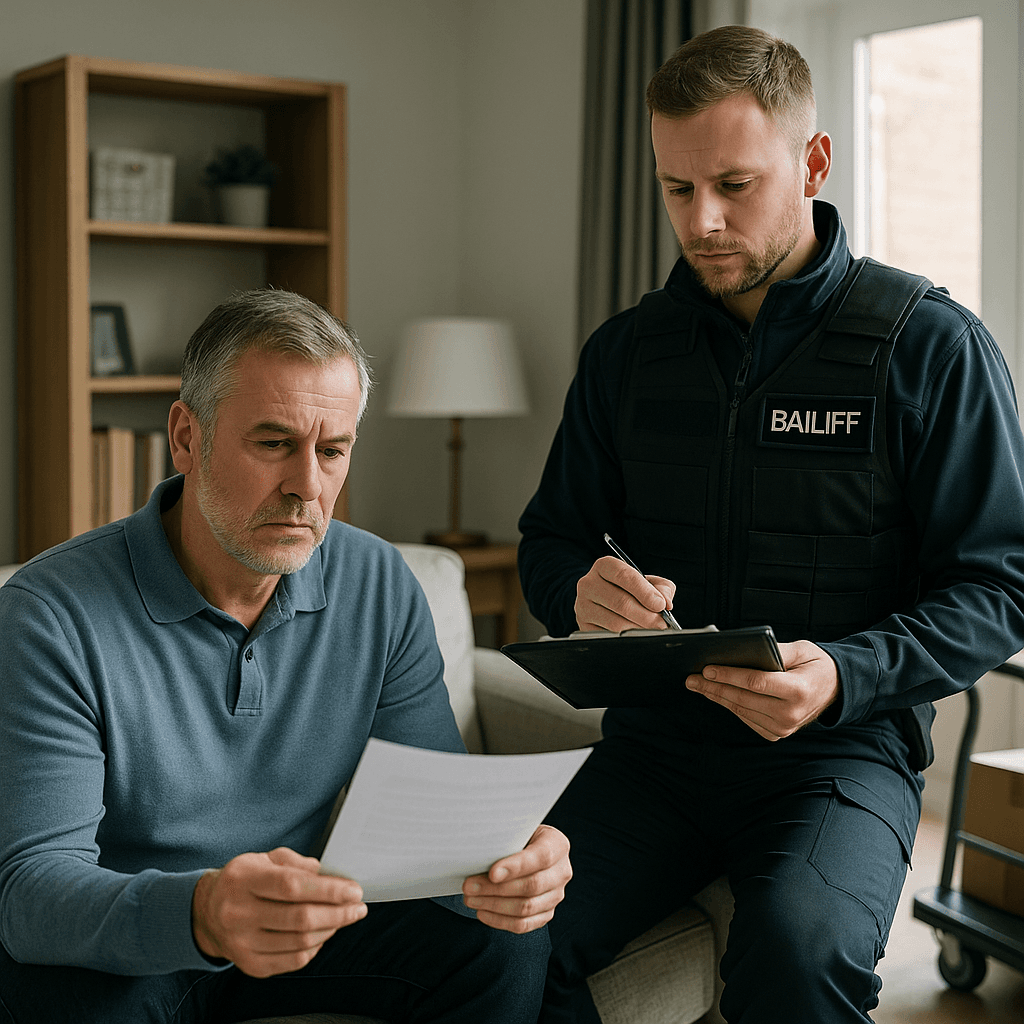
Understanding Controlled Goods Agreements: What You Need to Know in the UK
Lisa Rodriguez
•5 min read
Understanding Controlled Goods Agreements: What You Need to Know in the UK
Imagine this: you've recently received a notice regarding outstanding parking debts, and now a bailiff is at your door discussing something called a "Controlled Goods Agreement." The term might sound intimidating, but understanding its nuances can empower you to handle the situation effectively. Whether it's a parking fine or another type of debt, knowing your rights and responsibilities can make all the difference.
What is a Controlled Goods Agreement?
A Controlled Goods Agreement is a legal arrangement in the UK that allows bailiffs (also known as enforcement agents) to take control of your goods. This means they can list your possessions with the intention of selling them if you fail to pay your debts. This process is part of the enforcement procedure for debts such as unpaid parking fines, council tax arrears, or other civil debts.
How Does It Work?
When a bailiff visits your home, they may present you with a Controlled Goods Agreement. Here's how the process typically unfolds:
-
Initial Visit: The bailiff visits your address to discuss the debt. They must be respectful and can only enter your home peacefully, either through an open door or if you let them in.
-
Listing of Goods: If you allow the bailiff inside, they will make a list of items that can be taken if the debt remains unpaid. These items are considered "controlled goods."
-
Agreement Terms: You'll be asked to sign an agreement outlining how you'll repay the debt, usually through a payment plan. The listed items remain in your possession as long as you adhere to this plan.
-
Failure to Pay: If you fail to meet the payment terms, the bailiff can return and seize the listed items for sale.
What Are Your Rights?
Understanding your rights when dealing with bailiffs is crucial. Here are key points to keep in mind:
-
Entry Rights: Bailiffs cannot force entry into your home on their first visit. They’re only allowed to enter peacefully. However, if you've defaulted on a Controlled Goods Agreement, they may have the right to force entry during subsequent visits.
-
Excluded Goods: Certain items are exempt from being listed, such as essential household items like a cooker, fridge, or tools needed for your work (up to a certain value).
-
Identification: Bailiffs must present identification and a warrant authorizing their visit. You have the right to request these documents before any agreement is made.
-
Reasonable Conduct: Bailiffs must conduct themselves reasonably and can only visit between 6 a.m. and 9 p.m.
Practical Tips for Dealing with Bailiffs
Facing a bailiff at your door can be stressful, but these tips can help you manage the situation:
-
Stay Calm and Polite: Always keep your composure. Aggressive behavior can escalate the situation.
-
Verify Credentials: Politely ask for identification and the warrant. Ensure you're dealing with an official bailiff.
-
Negotiate Terms: If you're struggling financially, negotiate a reasonable payment plan that you can realistically maintain.
-
Seek Legal Advice: If you're unsure about any aspect of the agreement or feel your rights are being infringed, consult a legal advisor or a charity like Citizens Advice.
Pro Tip: Keep Records
Document every interaction with the bailiff. Note dates, times, and what was discussed or agreed upon. This record can be invaluable if disputes arise.
A Scenario: Parking Debts and Bailiffs
Let's say you overlooked a couple of parking fines that have now escalated. One day, a bailiff appears at your door. Remember, they can't barge in. Politely, you engage in a conversation through the door or a window. After confirming their credentials, you decide to let them in to discuss the matter further.
The bailiff proceeds to list non-essential items like your television and sound system while you agree on a manageable repayment plan. By staying informed and calm, you prevent immediate loss of your belongings while addressing your debts.
Legal Framework
In the UK, bailiff actions are governed by the Tribunals, Courts and Enforcement Act 2007, which outlines the procedures for enforcing debts and the rights of individuals facing enforcement action. Familiarity with this legislation can provide further reassurance and clarity.
Conclusion: Navigating Controlled Goods Agreements
While dealing with bailiffs and Controlled Goods Agreements can be daunting, understanding your rights and the process can demystify the experience. Remember, it's about finding a balance between fulfilling your obligations and protecting your assets.
Next Steps
- Evaluate Your Debts: List all outstanding parking fines or debts to prioritize repayments.
- Budget Wisely: Create a budget that accommodates any repayment plans.
- Seek Assistance: If needed, reach out to debt charities or legal advisors for guidance.
Controlled Goods Agreements are not the end of the road. With the right knowledge and approach, you can navigate this process with confidence, ensuring a fair resolution to your debt issues.